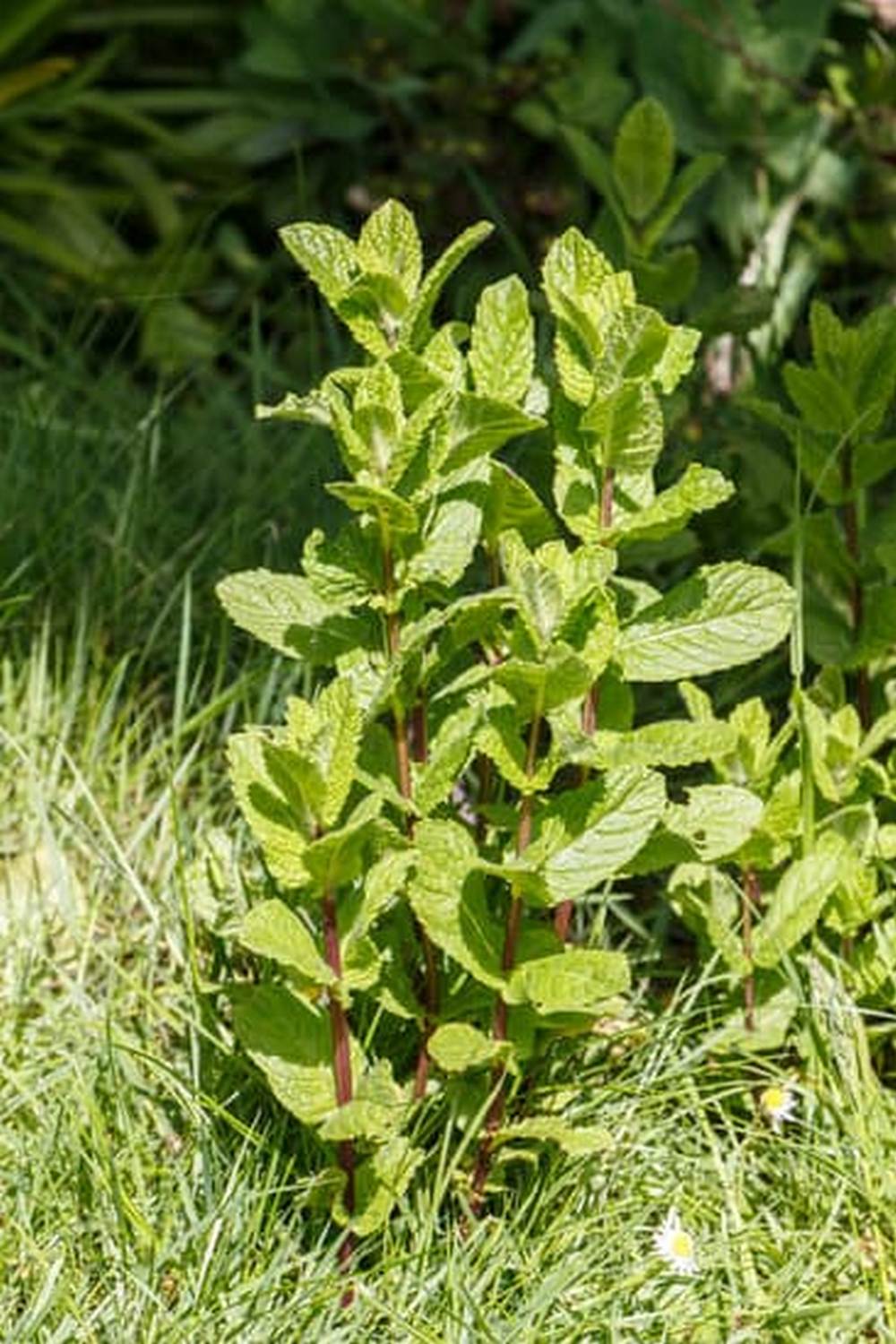Ants are a common nuisance in vegetable gardens, often causing damage to crops and disrupting the ecosystem. Finding a safe ant killer for vegetable gardens is crucial in maintaining a healthy and thriving environment for your plants. Using chemical pesticides can be harmful not only to ants but also to beneficial insects and even humans. Therefore, it is essential to explore natural and safe alternatives to control ant populations without compromising the health of your garden.
There are several common ant species that can be found in vegetable gardens, such as fire ants, carpenter ants, and Argentine ants. These ants can cause harm by feeding on plant roots, protecting aphids that damage plants, and even spreading diseases. In order to protect your vegetables from the potential harm caused by ants, it is important to implement effective ant control measures that are safe for your garden and the environment.
In this article, we will discuss the drawbacks of using chemical ant killers in vegetable gardens and provide insights into natural alternatives for safe ant control. From DIY recipes for safe ant killer solutions to tips on preventing future ant infestations, we aim to help you maintain a healthy garden while keeping unwanted pests at bay. By adopting natural methods of ant control, you can ensure a bountiful harvest while promoting a sustainable gardening practice.
Common Ant Species Found in Vegetable Gardens
Ants are a common sight in vegetable gardens and can be both beneficial and harmful to the plants depending on the species. Some of the most common ant species found in vegetable gardens include pavement ants, carpenter ants, fire ants, odorous house ants, and Argentine ants. While some of these species may not directly damage the plants themselves, they can attract other pests like aphids or scale insects that can harm your vegetables.
Among these species, fire ants are particularly troublesome as they can sting humans and pets if disturbed. They also disrupt the soil by building large mounds which can damage plant roots and hinder growth. Therefore, it is crucial to address ant infestations in your vegetable garden to maintain a healthy environment for your plants to thrive.
Using chemical ant killers in vegetable gardens can pose risks to both human health and the environment. These toxic substances may contaminate the soil and water sources, harming beneficial insects and pollinators essential for plant growth. Furthermore, exposure to chemical pesticides can have adverse effects on human health when consuming contaminated fruits and vegetables. As a result, many gardeners are turning towards natural and safe alternatives for ant control in their vegetable gardens.
| Ant Species | Potential Harm |
|---|---|
| Pavement Ants | Attract other pests like aphids or scale insects |
| Carpenter Ants | Can cause structural damage by tunneling through wood products. |
| Fire Ants | Sting humans and pets; disrupt soil by building mounds. |
Potential Harm Caused by Ants in Vegetable Gardens
Ants are not just simple nuisances in vegetable gardens; they can also cause potential harm to both plants and gardeners. One of the significant issues with ants in vegetable gardens is their tendency to “farm” aphids.
Aphids are tiny insects that feed on plant sap, and ants protect them because they secrete a substance that ants find attractive. This relationship between ants and aphids can lead to significant damage to vegetable crops as aphids weaken plants by sucking out vital nutrients.
Another harmful impact of ants in vegetable gardens is their tendency to disrupt the soil structure. Ant colonies can create extensive underground tunnels, which may interfere with the root systems of plants. This disturbance can hinder water absorption and nutrient uptake by plant roots, ultimately affecting the overall health and development of vegetable crops.
Moreover, some ant species can also bite or sting humans when they feel threatened or disturbed. These bites or stings can cause irritation, pain, and allergic reactions in sensitive individuals. In a vegetable garden setting, accidental encounters with ants while tending to plants can lead to unpleasant outcomes for gardeners. Therefore, it becomes crucial to address ant infestations in a safe and effective manner using appropriate ant killer solutions formulated specifically for vegetable gardens.
| Potential Harm Caused by Ants | Vegetable Gardens |
|---|---|
| Farming of aphids leading to plant damage | Weakens plants by robbing essential nutrients |
| Disruption of soil structure through tunneling | Hinders water absorption and nutrient uptake by plant roots |
| Possible human bites or stings from certain ant species | Can cause irritation, pain, or allergic reactions |
The Drawbacks of Using Chemical Ant Killers in Vegetable Gardens
Ants are a common pest in vegetable gardens, and while it is important to control their population, using chemical ant killers may have drawbacks. Chemical ant killers can be harmful to not only the ants but also to other beneficial insects and organisms in the garden. These chemicals can also linger in the soil and potentially contaminate the vegetables grown, posing a risk to human health.
Furthermore, chemical ant killers may not be exclusively targeted towards ants, often affecting a wider range of insects. This can disrupt the ecosystem balance in the garden, leading to unintended consequences such as an increase in other pest populations or a decrease in pollinators. In addition, repeated use of chemical ant killers may lead to ants developing resistance over time, making them harder to control in the long run.
To avoid these drawbacks, it is important to opt for natural and safe alternatives for ant killer in vegetable gardens. These alternatives are not only effective at controlling ant populations but also do not pose any harm to beneficial insects or contaminate the soil. By choosing environmentally friendly methods, gardeners can ensure a healthy and safe garden environment for both plants and humans alike.
Natural and Safe Alternatives for Ant Killer in Vegetable Gardens
Ants can often be a nuisance in vegetable gardens, causing damage to plants and disrupting the overall balance of the ecosystem. When looking for solutions to control ant populations in your garden, it is important to prioritize the use of safe ant killers that do not harm your plants or pose a risk to other beneficial insects. Here are some natural and safe alternatives for ant killer in vegetable gardens:
1. Diatomaceous Earth: This fine powder consists of fossilized aquatic organisms and is effective in deterring ants. Simply sprinkle diatomaceous earth around the perimeter of your garden beds or directly on ant mounds. The sharp particles in the powder will dehydrate ants, ultimately leading to their demise.
2. Citrus Peels: Ants are repelled by the strong scent of citrus fruits like lemons or oranges. Save your citrus peels after enjoying a snack or making juice, then scatter them around areas where ants are present in your garden. Not only will this help deter ants, but it will also add nutrients to the soil as the peels decompose.
3. Vinegar Solution: Create a mixture of equal parts water and white vinegar in a spray bottle and apply it directly on ant trails or nest entrances in your vegetable garden. The strong odor of vinegar disrupts their pheromone trails, making it difficult for ants to navigate their way back.
By opting for these natural alternatives for safe ant killer in your vegetable garden, you can effectively manage ant populations without compromising the health and safety of your plants or the environment. Additionally, these methods are cost-effective and sustainable options for controlling ants while promoting a thriving garden ecosystem.
DIY Recipes for Safe Ant Killer Solutions
Ants can be both a nuisance and a potential threat to vegetable gardens if left unchecked. While chemical ant killers may seem like a quick solution, they can harm not only the ants but also the plants in your garden. Opting for safe ant killer solutions is crucial to ensure the health of your vegetables and the environment. Here are some DIY recipes for natural ant killers that are safe for use in vegetable gardens:
- Peppermint spray: Ants strongly dislike the smell of peppermint, making it an effective natural repellent. To create a peppermint spray, combine 10-15 drops of peppermint essential oil with water in a spray bottle. Shake well and spray it around areas where ants are present.
- Vinegar solution: Vinegar is another powerful ant deterrent that is safe for use in vegetable gardens. Mix equal parts of white vinegar and water in a spray bottle and apply it to ant trails and entry points.
- Diatomaceous earth: Food-grade diatomaceous earth is a natural substance that can effectively eliminate ants without harming your vegetables. Sprinkle a thin layer of diatomaceous earth near ant mounds or entry points to deter them from entering your garden.
Using these DIY recipes for safe ant killer solutions not only helps keep your vegetable garden free from ants but also ensures that no harmful chemicals come into contact with your plants. Remember that consistency is key when using natural remedies, so make sure to reapply these solutions regularly for maximum effectiveness. By opting for safer alternatives, you can maintain a healthy and thriving garden environment without compromising on plant health or safety.
Remember, prevention is always better than cure when it comes to dealing with ants in vegetable gardens. Implementing good garden hygiene practices such as removing food sources, sealing gaps and cracks, and keeping vegetation trimmed can help prevent future ant infestations. With proper care and using safe ant killer methods, you can enjoy a bountiful harvest of fresh vegetables while maintaining a safe and eco-friendly garden environment.
How to Apply Safe Ant Killer in Vegetable Gardens
Ants can be a nuisance in vegetable gardens, but it is essential to address them using safe methods that do not harm the plants or the environment. When it comes to applying safe ant killer in vegetable gardens, there are several effective techniques that can help keep ant infestations at bay without resorting to harmful chemicals.
Identifying Ant Trails and Nests
Before applying any ant killer, it is important to identify where the ants are coming from and where their nests are located. By observing ant trails and following them back to their colonies, you can determine the best areas to target with ant control methods.
Using Natural Deterrents
One of the simplest ways to deter ants from invading your vegetable garden is by using natural deterrents such as cinnamon, peppermint, or citrus peels. Sprinkling these around the perimeter of your garden or near ant trails can help disrupt their pheromone trails and discourage them from entering your growing area.
Applying Safe Ant Killer Solutions
When natural deterrents are not enough to control an ant infestation, there are safe ant killer solutions that can be applied directly to problem areas. Mixtures of water, dish soap, and essential oils like neem oil or tea tree oil can be sprayed on ants or their nests to eliminate them without posing a threat to your vegetables. Remember to apply these solutions carefully and avoid spraying them directly on plants.
By following these methods for applying safe ant killer in vegetable gardens, you can effectively manage ant populations without compromising the health of your plants or the environment. With a little effort and some natural ingredients, you can maintain a healthy garden free from harmful chemicals and unwanted pests.
Tips for Preventing Future Ant Infestations in Vegetable Gardens
Ant infestations in vegetable gardens can be not only annoying but also harmful to the plants themselves. To prevent future ant invasions, it is crucial to take proactive measures to deter them from returning to your garden.
Keep Your Garden Clean and Tidy
Ants are attracted to food sources, so it is essential to keep your garden free of any leftovers or spilled produce. Make sure to harvest ripe vegetables promptly and store them properly. Regularly remove any debris or fallen leaves that could serve as a potential food source for ants.
Seal Entry Points
Inspect your garden for any cracks, crevices, or gaps that ants could use as entry points. Seal these gaps with caulk or other appropriate materials. Pay special attention to areas where utility pipes, wires, or cables enter your garden beds. By sealing off these entry points, you can significantly reduce the chances of ants invading your vegetable garden.
Cultivate Plants That Repel Ants
Certain plants have natural properties that repel ants and other pests. Consider incorporating plants like mint, lavender, marigolds, or garlic around the perimeter of your vegetable garden. These plants not only help deter ants but also add beauty and fragrance to your garden space. Additionally, planting basil near tomatoes can help protect them from ant infestations.
By following these tips and implementing preventive measures, you can create a hostile environment for ants in your vegetable garden, reducing the need for using potentially harmful chemical ant killers. Taking a proactive approach to ant control will help maintain a healthy and thriving garden without compromising the safety of your plants or the environment.
Conclusion
In conclusion, it is crucial for gardeners to prioritize the use of safe ant killers for their vegetable gardens to maintain a healthy and thriving environment. Chemical ant killers may provide a quick solution, but they pose risks to both human health and the ecosystem. By opting for natural alternatives, such as diatomaceous earth, essential oils, or vinegar solutions, gardeners can effectively control ant populations without harming beneficial insects or contaminating their produce.
Implementing DIY recipes for safe ant killer solutions not only helps in controlling ant infestations in vegetable gardens but also promotes sustainability and environmental consciousness. These homemade remedies are easy to make, cost-effective, and ensure that your garden remains free from toxic residues that could potentially harm your family or pets. By choosing natural options over chemical pesticides, gardeners contribute to the overall health of their surroundings while protecting pollinators and other beneficial organisms essential for plant growth.
Furthermore, by following proper application techniques and consistently practicing preventive measures, such as maintaining cleanliness, sealing entry points, and removing potential food sources for ants, gardeners can effectively deter future ant infestations in their vegetable gardens. It is important to remember that a well-balanced ecosystem in the garden not only supports plant growth but also minimizes the need for harsh chemicals.
Ultimately, prioritizing natural ant control methods contributes to creating a safe and sustainable environment where both plants and insects can thrive harmoniously.
Frequently Asked Questions
What Ant Poison Is Safe for Vegetable Gardens?
When looking for ant poison that is safe for vegetable gardens, it is important to choose products that are specifically labeled as non-toxic to plants and safe for use around edible crops. Natural remedies like diatomaceous earth or boric acid can also be effective in controlling ants without harming your vegetables.
How Do I Get Rid of Ants in My Vegetable Garden Without Killing Plants?
To get rid of ants in your vegetable garden without killing plants, you can try using natural deterrents like cinnamon, citrus peels, or vinegar to create barriers that ants will avoid. Additionally, improving drainage and cleanliness in the garden can help discourage ants from making a home near your plants.
How Do I Get Rid of Ants in My Raised Vegetable Bed?
Getting rid of ants in a raised vegetable bed may require a multi-faceted approach. Firstly, make sure to eliminate potential food sources like crumbs and spills around the bed.
Consider placing ant traps or using natural repellents like mint or cloves to deter ants from entering the raised bed area. Regularly inspecting and maintaining the bed can help prevent ant infestations from taking hold.

If you’re looking to get into vegetable gardening, or are just looking for some tips on how to make your current garden better, then you’ve come to the right place! My name is Ethel and I have been gardening for years. In this blog, I’m going to share with you some of my best tips on how to create a successful vegetable garden.





